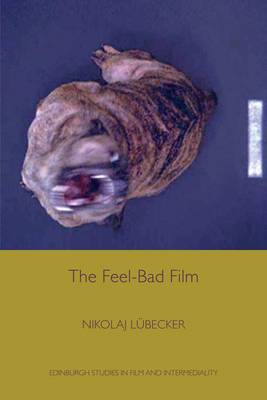
- Retrait gratuit dans votre magasin Club
- 7.000.000 titres dans notre catalogue
- Payer en toute sécurité
- Toujours un magasin près de chez vous
- Retrait gratuit dans votre magasin Club
- 7.000.0000 titres dans notre catalogue
- Payer en toute sécurité
- Toujours un magasin près de chez vous
Description
In recent years some of the best-known European and American art film directors have made films that place the spectator in a position of intense discomfort: Feel-Bad Films. These films systematically manipulate the spectator: sometimes by withholding information from her, sometimes by shocking her, and sometimes by seducing her in order to further disturb her. As a result, they have been criticized for being amoral, nihilistic, politically irresponsible and anti-humanistic.
The Feel-Bad Film raises three questions to this body of work: How is the feel-bad experience created? What do the directors believe they can achieve in this manner? And how should the films be situated in intellectual history? Through close analysis of films by Lars von Trier, Gus Van Sant, Claire Denis, Michael Haneke, Lucille Hadzihalilovic, Brian de Palma, Bruno Dumont and Harmony Korine, the book argues that feel-bad directors invite the spectator to think of art as an experimental activity with ethical norms that are different from the ones we hope to find outside the movie theatre. Only when given the freedom to take advantage of this asymmetry can film realize its ethical potential.
Spécifications
Parties prenantes
- Auteur(s) :
- Editeur:
Contenu
- Nombre de pages :
- 200
- Langue:
- Anglais
- Collection :
Caractéristiques
- EAN:
- 9780748697991
- Date de parution :
- 19-05-15
- Format:
- Livre broché
- Format numérique:
- Trade paperback (VS)
- Dimensions :
- 155 mm x 234 mm
- Poids :
- 340 g

Les avis
Nous publions uniquement les avis qui respectent les conditions requises. Consultez nos conditions pour les avis.






